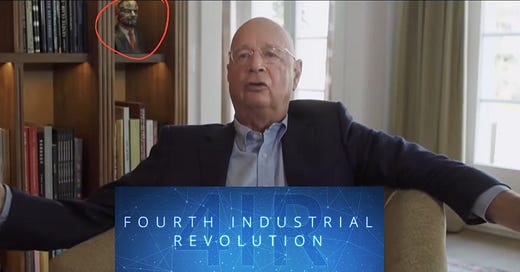What is the Fourth Industrial Revolution, and why the hell does Klaus Schwab have a bust of Lenin in his office?
So grab yourself a drink - I’d recommend something light, say, a triple scotch on the rocks - strap yourself in, and read on - because it all makes sense, and furthermore perfectly aligns with the broader agenda at play.
Unless you’ve lived under a rock, you should be familiar with Klaus Schwab and his almost comedic levels of portrayed evil, suggestive of a dark emperor of the infamous business forum known for its annual event in Davos - the World Economic Forum. You’ve probably even heard of his 2016 book, the ‘Fourth Industrial Revolution’1.
But… it’s not a terribly exciting book, to be quite honest with you. Like most material on the topic of the ‘4IR’, it speaks of how the world is alleged to change - yet he somehow manages to steer clear of the single most important change of all.
Keep reading with a 7-day free trial
Subscribe to The price of freedom is eternal vigilance. to keep reading this post and get 7 days of free access to the full post archives.




